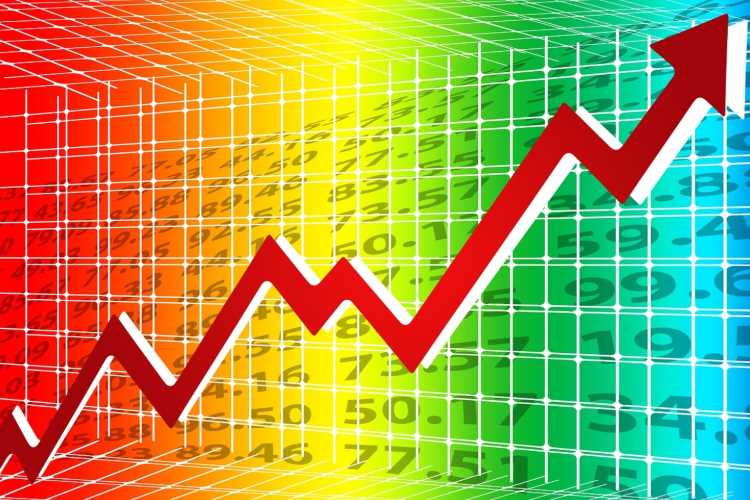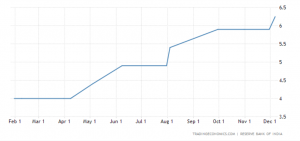
The monetary policy committee of the Reserve Bank of India has started its three-day deliberations today. Analysts expect another 25 basis points hike in the repo rate on Wednesday despite retail inflation ruling below the RBI’s tolerance limit of 6%. The RBI had effected five repo rate hikes in 2022 totalling 225 basis points to 6.25% to tame the sticky retail inflation.
The GDP data for the second quarter shows that the economy is growing at 6.3% compared with 13.5% in the previous three months. The growth rate is robust in the current global context. The growth rate in the second quarter last year was 8.4% percent. Indian economy expanded 9.7% in the first half of the current financial year compared with 13.7% in the same period last year.
RBI repo rate hikes in 2022

Agriculture sector grew at 4.6% in Q2 and 4.5% in Q1 compared with 3.2% and 2.2% in the corresponding quarters of the previous year. Agriculture continues to play a pivotal role in the India growth story. Other sectors such as construction, real estate, public administration, hotels, and transport also performing well in the quarter.
READ I Gathering storms: US economy stares at a debt limit standoff in the Congress
India an outlier in slowing world
The private final consumption expenditure has increased to 59.2% of the GDP in the first half of the current year from 55.4% in the same period last year. Similarly, the government fixed capital formation has increased from 33.1% to 34.7% over the period. The exports of goods and services rose from 22.4% to 23.1% percent while growth in imports far outstripped exports at 31.5%, implying increasing pressure on the current account deficit.
The high frequency data is quite encouraging in terms of sales of commercial vehicles, purchase of private vehicles, consumption of steel, and cargo handled at sea ports, signifying that the economy is performing well. There is robust growth in bank deposits and credit offtake, with credit growth out-stripping deposits growth significantly. Industrial performance in terms of IIP and core sector growth in the first half of the year also shows a positive trend. Thus, the economy is performing well and green shoots are visible across the spectrum.
The fiscal story also looks encouraging with GST collections touching a record high of Rs 1.45 lakh crore in November 2022. The indirect tax regime is expanding to capture the whole economy and there is potential for further growth. Direct tax collection up to November 10, 2022 is significantly higher than the previous year. The growth rate in corporate tax collection and personal income tax (after refunds) is 24.5% and 28.1% respectively. This direct tax collections are 61.3% of the budget estimate of direct taxes for 2022-23. Thus, the fiscal sector has demonstrated that the domestic economy is resilient to the global economic crisis.
On employment, PLFS and CMIE data show that unemployment has declined significantly. EPFO data reveals that formal sector employment has improved with 16.82 lakh members added in September 2022. In the July-September period of 2022, unemployment rate in urban areas declined to 7.2% from 9.8% during similar period in the previous year, according to PLFS.
India is outperforming other major countries in economic growth rate. The growth rate has slowed down across the world, but the decline is more severe in advanced economies than emerging markets. The aggressive policy rate hikes by advanced economies could be detrimental for the global economy and the revival of growth in the post-Covid period. As far as inflation is concerned, rich countries are experiencing inflation in the range of 5 times their long-term trend. In contrast, inflation is just about the upper side of the target band in India.
With the dismal global growth scenario, India is emerging as an island of growth and stability in the global economy. Hence, the RBI should not be aggressive in increasing the repo rate. It is time to press the pause button to nurture the growth impulses in the economy.
Dr Charan Sigh is a Delhi-based economist. He is the chief executive of EGROW Foundation, a Noida-based think tank, and former Non Executive Chairman of Punjab & Sind Bank. He has served as RBI Chair professor at the Indian Institute of Management, Bangalore.

